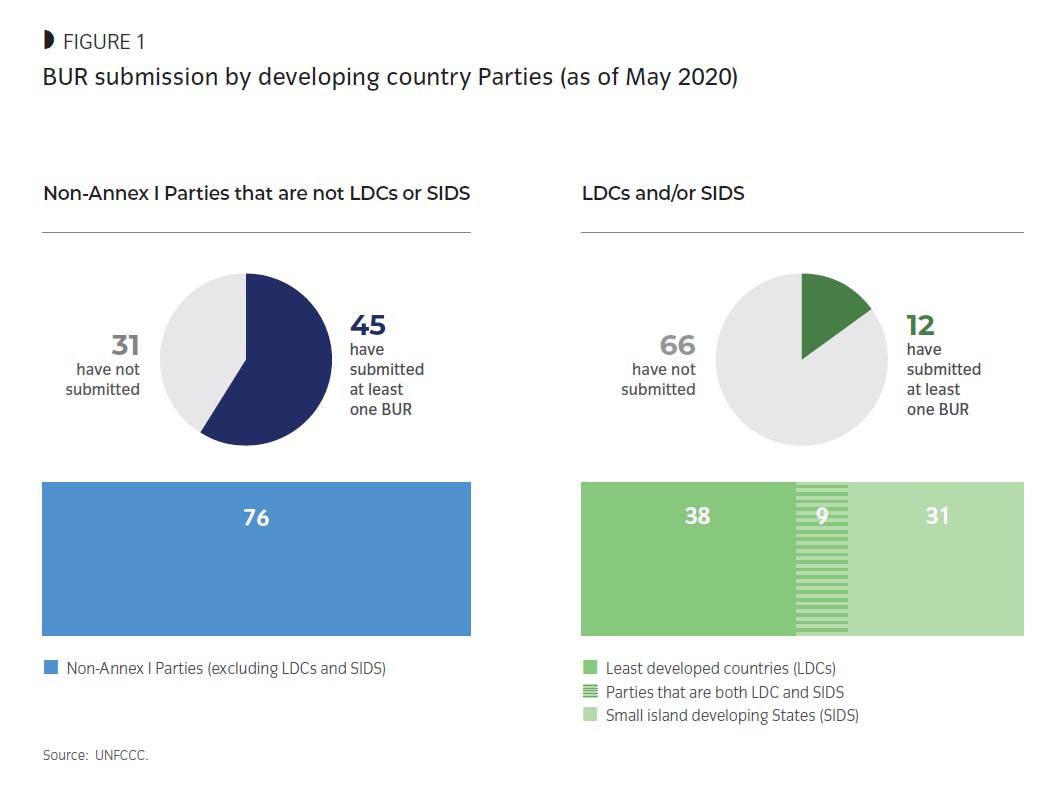
Select language
Trends
Global Trends
| Title | [UNFCCC] New UNFCCC Publication: Transparency Process Facilitates Climate Action |
|---|---|
|
UN Climate Change News, 14 July 2020 – UN Climate Change has released a new publication that highlights how a process to boost transparency has facilitated climate action by developing countries. The process of international consultation and analysis (ICA) is a key pillar of the existing transparency arrangements under the UNFCCC. Through its focus on transparency and analysis, it has increased trust and confidence among countries. Importantly, this has enabled developing countries to make informed decisions and garner greater support for climate action. The new publication looks back at how far the ICA has come since its launch five years ago. The new publication also zooms in on how the ICA experience and lessons learned from the process will help countries transition towards the enhanced transparency framework (ETF) under the Paris Agreement. Ms. Patricia Espinosa, Executive Secretary of UN Climate Change welcomed the new publication and said: “In our journey to increase climate ambition under the Paris Agreement, transparency is becoming ever more important. The ICA process provides Parties with an essential learning opportunity to prepare for the transition to the enhanced transparency framework.” Climate actions and transparency in developing countries The ICA process represents a significant step forward in increasing the transparency of climate actions of developing countries and was built to offer practical support to these countries. The process enables developing countries to share a clear picture of the current trajectory of their greenhouse gas emissions, the progress of their climate actions, and the support they need and have received. The up-to-date information shared through the process helps steer further actions by Parties and the targeted support provided to them through various channels. ICA also allows Parties to learn from each other and build confidence that they can deliver the objectives of the Convention through continued efforts. Most importantly, the ICA process provides an invaluable opportunity to identify specific capacity-building needs in developing country Parties and facilitates continuous improvement over time. These needs provide a solid basis on which to seek targeted support and pursue greater ambition. Since its launch in 2015, developing countries have been participating in increasing numbers, providing national reports more frequently, and engaging in the international process to have them analysed in a transparent manner. As at May 2020, 57 developing country Parties had submitted at least one biennial update report (BUR). This represents 59 per cent of those developing countries that are neither classified as Least Developed Countries (LDCs) nor as Small Island Developing States (SIDS), while 15 per cent of submitting Parties are classified under one of these two groupings. There is also an increasing number of countries that are submitting subsequent BURs after successfully completing their first ICA cycle. This means that an overall total of 98 BURs have been submitted to UN Climate Change. Since the introduction of BURs and the ICA process, the frequency and clarity of reporting by developing countries have increased substantially compared with the previous reporting arrangements. The increased availability of information facilitated by ICA, including up-to-date information on greenhouse gas inventories and climate actions in developing countries, expands the knowledge base. The clearer information shared through the ICA process also reveals growing efforts among developing countries to use more up-to-date methodological guidance. Together with the national communications, the information shared through the ICA process sheds light on the progress being made by developing country Parties in their response to climate change. These processes clearly show that developing countries are accelerating their efforts to slow the growth of greenhouse gas emissions with enhanced political commitment. Countries are increasingly moving away from individual projects towards sectoral interventions with a wider scope. While the objective of the ICA process set out by the Conference of the Parties focuses on the need to increase the transparency of mitigation actions and their effects, an increasing number of developing countries also provide information on their adaptation efforts in their BURs. Moving towards the Paris Agreement’s enhanced transparency framework Parties will soon start implementing the ETF under the Paris Agreement, with submissions of the first biennial transparency reports being due no later than 31 December 2024. Developing country Parties will submit their final BURs by no later than 31 December 2024. During the transition to the new transparency arrangements, ICA will be more important than ever as it informs the process to be established under the ETF and serves as the foundation for Parties in preparing comprehensive and targeted plans to improve their national capacity. The ICA process is proving to be a useful testing ground for assessing Parties’ readiness to transition effectively to the ETF.
The findings presented in this publication provide assurance that Parties are making substantial progress in transparency under the existing arrangements, and that the developing country Parties that have participated in the ICA process are in a better position to prepare for the transition to the ETF. The ICA process provides an essential learning opportunity for developing countries to help them assess their level of readiness and steer further development of their national capacity ahead of the transition. Hence, it is crucial for Parties to engage in the ICA process at least once in preparation for the transition to the ETF. The secretariat is available to answer your questions, share experiences, connect and engage with others to exchange views on similar issues and to work together with countries and other stakeholders during this transition to the ETF. For further information, please see here. |
|
| View Original URL | View Original |
| Category | UNFCCC |
| File |
|
| Sources | UNFCCC (United Nations Framework Convention on Climate Change) |
| Prev | [CTCN] Webinar, CTCN work in Grenada: Improvement of water supply management |
|---|---|
| Next | 초청정-고효율 연료다변형 미래에너지 생산기술 기술설명회 |






